
Exploring 200+ Psychology Topics to Research: Unlocking the Depths of the Mind

The world of psychology is as vast as the human mind itself. Delving into the intricate workings of the human psyche can be both fascinating. For students, academics, or anyone with a curious mind, choosing the right psychology topics to research is paramount. In this blog, we’ll navigate through the labyrinth of psychology topics, helping you find your way to a captivating and meaningful research endeavor.
How To Select Psychology Topics To Research?
Table of Contents
- Follow Your Interests: Start with what you love. What aspects of human behavior or the mind fascinate you the most? It’s much easier to research something you’re passionate about.
- Consider Relevance: Think about how your chosen topic fits into your academic or career goals. Does it relate to what you’re studying or the job you want? If it does, great!
- Balance the Scope: Don’t pick a topic that’s too broad or too narrow. Find that sweet spot in the middle. You want a topic that’s focused enough to research effectively but not so narrow that there’s no existing information.
- Explore Different Areas: Research the various branches of psychology, like cognitive, social, clinical, developmental, or biological psychology. See which one resonates with you the most.
- Seek Advice: Talk to your professors, mentors, or peers. They can provide guidance and suggestions based on your interests and goals.
200+ Popular Psychology Topics To Research: Category Wise
40+ cognitive psychology topics.
- The role of working memory in problem-solving.
- Cognitive effects of sleep deprivation.
- Neural basis of attention and focus.
- Influence of language on cognitive development.
- Decision-making biases in economic behavior.
- The psychology of learning and memory.
- The impact of stress on cognitive performance.
- Cognitive decline in aging populations.
- Emotion and memory recall.
- False memories and eyewitness testimony.
- Cognitive processes in creativity.
- Cognitive aspects of decision-making in healthcare.
- The psychology of expertise and skill acquisition.
- Cognitive factors in reading comprehension.
- The role of schemas in information processing.
- Cognitive development in infants.
- Cognitive rehabilitation after brain injury.
- Attention-deficit/hyperactivity disorder (ADHD) and executive functions.
- Neural mechanisms of perception and visual attention.
- The psychology of problem-solving in artificial intelligence.
- Cognitive aspects of mathematical reasoning.
- Neural plasticity and cognitive recovery.
- Cognitive load and its impact on learning.
- Memory consolidation during sleep.
- Attentional disorders and their impact on cognitive functioning.
- The influence of music on cognitive processes.
- Cognitive development in bilingual individuals.
- Cognitive aspects of decision-making in criminal behavior.
- Neural correlates of cognitive control.
- The psychology of cognitive biases in politics.
- Cognitive effects of mindfulness meditation.
- The part working memory plays in academic success.
- Cognitive processes in language acquisition.
- Cognitive factors in problem gambling behavior.
- The psychology of cognitive development in children with autism.
- Cognitive aspects of spatial navigation.
- Memory distortions and the courtroom.
- Neural basis of cognitive dissonance.
- Cognitive aspects of social perception.
- Cognitive rehabilitation in Alzheimer’s disease.
40+ Social Psychology Research Topics
- The impact of social media on self-esteem.
- Groupthink and decision-making.
- Stereotype threat in academic settings.
- Bystander effect in emergencies.
- Cross-cultural perspectives on conformity.
- Online dating and self-presentation.
- The psychology of social influence.
- The role of empathy in prosocial behavior.
- Social identity and intergroup relations.
- Aggression and video game exposure.
- Prejudice and discrimination in modern society.
- The influence of social norms on behavior.
- Attitudes and attitude change.
- Social support and mental health.
- Obedience to authority figures.
- Social comparison and self-concept.
- The psychology of attraction and relationships.
- The bystander intervention model.
- Body image and social media.
- Political polarization and social psychology.
- The psychology of fake news and misinformation.
- Emotional contagion and social interactions.
- Stereotyping in the workplace.
- Consequences of cyberbullying.
- The impact of group dynamics on creativity.
- Gender roles and socialization.
- The role of humor in social interactions.
- Social factors in decision-making and risk-taking.
- Altruism and volunteerism.
- The psychology of leadership and authority.
- Social exclusion and its effects on individuals.
- The relationship between religion and prosocial behavior.
- Social influence in marketing and advertising.
- Online activism and social change.
- The psychology of online communities and forums.
- Attachment styles and adult relationships.
- Social perceptions of beauty and attractiveness.
- Social isolation’s negative consequences on mental health.
- The psychology of public speaking anxiety.
- The role of forgiveness in interpersonal relationships.
40+ Clinical Psychology Research Topics
- Effects of childhood trauma on mental health in adults.
- Efficacy of virtual therapy for treating anxiety disorders.
- Exploring the genetics of schizophrenia.
- Effects of mindfulness meditation on depression.
- Cultural factors in the diagnosis of eating disorders.
- Examining the link between sleep disorders and mood disorders.
- Assessing the effectiveness of group therapy for substance abuse.
- The role of attachment in borderline personality disorder.
- Investigating the stigma surrounding mental illness.
- Treating PTSD in veterans through exposure therapy.
- Neurobiological basis of obsessive-compulsive disorder (OCD).
- Parent-child relationships and their impact on conduct disorder.
- Gender differences in the prevalence of depression.
- Cognitive-behavioral therapy for social anxiety disorder.
- Psychopharmacology and treatment-resistant depression.
- The psychology of self-harm and self-injury.
- Internet addiction and its connection to mental health.
- Assessing the efficacy of art therapy for PTSD.
- Personality disorders and their impact on interpersonal relationships.
- Evaluating the effectiveness of dialectical behavior therapy (DBT) in treating borderline personality disorder.
- Factors contributing to the rise in adolescent depression.
- Exploring the link between childhood abuse and dissociative identity disorder.
- Cross-cultural perspectives on the diagnosis of ADHD.
- The role of serotonin in mood disorders.
- Mindfulness-based stress reduction in chronic pain management.
- Impact of family dynamics on eating disorders in adolescents.
- Examining the long-term effects of child neglect on adult mental health.
- Psychosocial factors in the development of schizophrenia.
- Gender dysphoria and psychological well-being.
- The psychology of resilience in cancer patients.
- Attachment styles and their influence on adult relationships.
- Virtual reality exposure therapy for phobias.
- Exploring the effectiveness of equine therapy for trauma survivors.
- Autism spectrum disorders and early intervention.
- Body image dissatisfaction and its link to eating disorders.
- The psychological impact of chronic illness.
- Cognitive rehabilitation in traumatic brain injury.
- Sleep disorders in children and their impact on academic performance.
- The role of social support in recovery from substance abuse.
- Neuropsychological assessment in Alzheimer’s disease diagnosis.
40+ Developmental Psychology Research Topics
- The impact of parental divorce on child development.
- Adolescents’ self-identity and social media.
- Long-term effects of early childhood attachment on adult relationships.
- Gender identity development in children.
- The influence of birth order on personality development.
- The role of genetics in language development.
- Autism spectrum disorder interventions for toddlers.
- Adolescent peer pressure and substance abuse.
- The impact of bullying on psychological development.
- Sibling rivalry and its long-term effects.
- Parenting styles and their influence on children’s behavior.
- The development of moral reasoning in children.
- Influence of cultural factors on child development.
- Attachment theory and foster care outcomes.
- The impact of technology on cognitive development in children.
- Children’s understanding of death and grief.
- Cognitive development in bilingual children.
- The role of play in early childhood development.
- Attachment disorders and interventions in adopted children.
- The development of emotional intelligence in adolescents.
- The impact of poverty on child development.
- The relationship between nutrition and cognitive development.
- Bullying prevention and intervention programs in schools.
- The role of grandparents in child development.
- Developmental aspects of sibling relationships.
- Child prodigies and their psychological development.
- Gender stereotypes and their influence on children’s aspirations.
- The effects of early education on academic success.
- Cognitive development in children with learning disabilities.
- The impact of divorce on young adults’ romantic relationships.
- Parent-child communication about sex education.
- Adolescents’ body image and its influence on self-esteem.
- Influence of peer relationships on early social development.
- The role of extracurricular activities in adolescent development.
- Long-term outcomes for children in same-sex parent families.
- Cognitive development in children with ADHD.
- The effects of early exposure to screens on cognitive development.
- The role of attachment in adolescent mental health.
- Identity development in multicultural children.
40+ Biological Psychology Research Topics
- The neural basis of addiction and substance abuse.
- The role of genetics in personality traits.
- Effects of sleep deprivation on cognitive function.
- Exploring the gut-brain connection and its impact on mental health.
- Neural mechanisms of stress and its long-term effects.
- The relationship between brain structure and intelligence.
- The impact of exercise on brain health and cognition.
- Neurobiological factors in eating disorders.
- Neural pathways involved in fear and anxiety.
- The influence of hormones on behavior and mood.
- Neuroplasticity and its implications for recovery after brain injuries.
- The biology of memory and amnesia.
- Understanding the neurological basis of schizophrenia.
- The role of neurotransmitters in depression.
- The impact of aging on brain structure and function.
- Neural mechanisms underlying aggression and violence.
- Brain imaging techniques and their applications in research.
- The effects of prenatal exposure to toxins on brain development.
- Neurological aspects of autism spectrum disorders.
- Brain changes associated with post-traumatic stress disorder (PTSD).
- The genetics of Alzheimer’s disease.
- Neurobiology of consciousness and altered states of consciousness.
- The role of the amygdala in emotional processing.
- Neural mechanisms of sexual attraction and orientation.
- The impact of nutrition on brain development and function.
- Brain regions involved in decision-making and impulsivity.
- Neurological factors in Tourette’s syndrome.
- The biology of reward and motivation.
- Neural correlates of empathy and social cognition.
- Genetic predisposition to addiction.
- The influence of hormones on maternal behavior.
- The neurological basis of attention-deficit/hyperactivity disorder (ADHD).
- Adolescent brain development and the effects on behavior.
- The prefrontal cortex’s function in executive tasks.
- Linguistic disorders and language neuroscience.
- Neuroinflammation’s effects on mental health.
- Mechanisms in the brain that affect sensory perception.
- Neurological and genetic influences on bipolar disorder.
- The impact of persistent pain on brain development and function.
- The endocannabinoid system’s function in controlling mood.
Research Methodology for Psychology Topics
Understanding various research methodologies is key to conducting a successful study. Whether you opt for experimental designs, surveys, case studies, or sophisticated data analysis, each method offers unique insights. Choose the methodology that aligns with your research questions and objectives, ensuring a robust and reliable study.
Resources for Psychology Research
In the digital age, a wealth of resources for psychology topics to research is at your fingertips. Utilize academic journals, databases, books, and online courses to enhance your understanding.
Engage with professional organizations and attend conferences to stay updated with the latest research trends and network with fellow enthusiasts.
Tips for Successful Psychology Topics for Research
- Choose a Fascinating Topic: Select a research topic that genuinely interests you. Your passion and curiosity will drive your motivation and engagement throughout the research process.
- Narrow Your Focus: Refine your research question to ensure it’s specific and manageable. A focused question will lead to more meaningful and in-depth findings.
- Conduct a Thorough Literature Review: Familiarize yourself with existing research in your chosen area. This helps you build on prior knowledge and identify gaps in the literature.
- Hypothesize and Predict: Develop clear hypotheses and predictions for your study. This sets the direction for your research and provides a framework for data collection and analysis.
- Choose the Right Research Method: Select the research method that best suits your research question, whether it’s experiments, surveys, interviews, or case studies.
- Ethical Considerations: Prioritize ethical guidelines in your research, including obtaining informed consent, ensuring confidentiality, and avoiding harm to participants.
- Sample Selection: Carefully choose your sample to make sure it’s representative of the population you’re studying. Consider factors like age, gender, and cultural diversity.
- Data Collection: Collect data systematically and ensure its accuracy and reliability. Use well-established measurement tools when applicable.
- Data Analysis: Employ appropriate statistical techniques to analyze your data. Make use of software like SPSS or R for thorough analysis.
- Interpret Results Objectively: Avoid confirmation bias and interpret your results objectively, even if they don’t align with your initial hypotheses.
- Discuss Limitations: Acknowledge the limitations of your study in your research paper. This demonstrates your awareness of potential weaknesses and strengthens your research’s credibility.
- Contribute to the Field: Highlight the significance of your research and how it contributes to the broader field of psychology. What does it add to existing knowledge?
- Write Clearly and Concisely: Communicate your findings in a clear, concise, and well-structured manner. Use APA or other relevant style guides for formatting.
- Peer Review: Seek feedback from colleagues, mentors, or professors. Peer review can help identify blind spots and improve the quality of your work.
- Stay Organized: Maintain detailed records of your research process, including notes, data, and references. Organization is key to successful research.
- Time Management: Plan your research timeline carefully, allocating sufficient time for each stage, from literature review to data collection and analysis.
- Persevere: Research often involves setbacks and challenges. Stay persistent, adapt when necessary, and remain dedicated to your research goals.
- Publish and Share: Consider presenting your research at conferences and seek opportunities for publication in academic journals . Sharing your findings contributes to the advancement of the field.
- Stay Informed: Keep up with the latest research trends and developments in psychology. Attend conferences and join professional organizations to stay connected with the academic community.
- Collaborate: Don’t hesitate to collaborate with other researchers, as teamwork can lead to valuable insights and more significant research outcomes.
Choosing the psychology topics to research is akin to embarking on an adventure into the depths of the human mind. Each topic holds the potential to unravel mysteries, challenge assumptions, and make a meaningful impact on individuals and society.
As you venture into this realm, remember that your curiosity and dedication are your greatest assets. Embrace the journey, learn from every step, and let your research contribute to the ever-expanding tapestry of psychological knowledge. Happy researching!
Related Posts

Step by Step Guide on The Best Way to Finance Car

The Best Way on How to Get Fund For Business to Grow it Efficiently
200 Plus Psychology Research Paper Topics for Students

Psychology research holds an extraordinary power to unravel the human mind’s and behavior’s complexities. The key to unlocking this power lies in selecting the right research topic. It’s like picking up a topic that can lead to remarkable discoveries and profound insights. Speaking of which, this blog post presents over 200 awe-inspiring psychology research paper topics for students and researchers alike. Of course, a Best Affordable writing service can help, but these topics will allow you to handle your assignment independently. Let’s get started!
Table of Contents
Best Techniques for Choosing a Perfect Psychology Research Paper Topic
Here are some of the best techniques to help you in selecting the perfect psychology research topic:
Personal Interest
Think about what sparks your interest in psychology. Pick something that intrigues you, and you’d like to learn more about. This way, the research will be much more enjoyable and motivating for you to dig deeper.
Literature Review
Do a thorough search of the psychology literature to get a sense of all the research that has been done. See what questions have been answered, what hasn’t been answered, and what new and interesting trends have emerged. That’ll help you hone in on a topic that could be meaningful for the field.
Brainstorming
Try having some brainstorming sessions to come up with ideas for research topics. Jot down any thoughts that come to mind, even if they initially seem a bit out there. Look into different parts of psychology that interest you, like different theories or applications.
Consult with Professors and Peers
See if you can get advice from experienced teachers or mentors who know their stuff and can give you helpful tips and advice. Talking to other people in the same field as you can also help to give you new ideas and help you figure out what to research.
Feasibility and Resources
Consider whether you have the resources, data, and time for your chosen topic. Ensure you have the right research materials, data-gathering techniques, and ethical issues figured out for your topic.
Relevance and Impact
Think about how important your research topic is. Does it tackle a big problem or add something new to the field of psychology? Consider the effects and implications of your research to ensure it makes a real difference.
Narrowing Down
Once you’ve got some ideas for potential topics, look at them and see how they match up with factors like the amount of research you’d need to do, how realistic it is, and whether it fits with the goals you have for your studies. Pick something specific enough to get into it but broad enough that there’s a lot to explore.
200 Unique and Impressive Psychology Research Topics
Here’s the list of impressive psychology research topics:
Clinical Psychology Research Paper Topics
Clinical psychology is a fascinating science branch, even though it can be complicated. When it comes to picking research topics, students can find themselves stuck. But this list is the answer.
- Clinical Contributions to the Psychology
- Psychological and emotional processes of revenge
- Compare two different psychological disorders
- Comparison and contrast between two different types of therapy.
- How people’s lives are affected by anxiety disorders
- Disorder diagnosis and clinical treatment
- Symptoms and effects of long-term childhood trauma
- Impact of trauma-based disorders on daily life functioning
- Emotional and sexual abuse, differences, and symptoms
- Use and Effectiveness of online therapy in clinical psychology
- Most effective treatments for treating childhood behavioral disorders
- Influence of the aging process on mental illness
- Psychological trauma due to fear of war
- The trauma of living in a war
- Identification and Early Intervention of Victims of recent trauma
Cognitive Psychology Research Paper Topics
If you are into cognitive psychology, check out this list of great research topics .
- Choice behavior: Analytical Study
- Speech perception and communication
- Sentence processing and language acquisition
- Short-term and long-term memory: Psychology of forgetting
- Retrieval from memory, nature, and analysis
- Visual and auditory imagery: Mechanisms and behaviors
- Control and dynamics of the Memorial system
- Reading and Understanding
- Conceptual representation and categorization
- Visual perception and optical behaviors
- Speech and auditory recognition and characterization
- Focus and division of attention
- Cognitive processing
- Collective and individual obedience–psychological explanation
- Reasoning process – Study in comparison between adults and children
- Why do some people stay young and some age prematurely
- The ability to read and spell in children with disabilities
Developmental Psychology
Here’s another list of fascinating topics on the interesting subject of psychology.
- Do the kids who eat breakfast do better in school than those who don’t?
- Impact of parenting style on Children’s physical activity level
- How lack of involvement or authoritarian parents’ behavior impacts their children’s activity level
- Are bullied students more likely to have lower grades than their non-bullied peers?
- Impacts of Bullying on a Child’s academic progress
- Changes in short-term memory as we age
- Do brain games like word searches, sudoku, and word matching help older adults sharpen their cognitive skills?
- Does birth order have an impact on a child’s behaviour regarding procrastination ? Are firstborns less likely to procrastinate?
Evolutionary Psychology Research Paper Topics
Being a psychology student, you must know how the field has evolved. Here you go with the list:
- History and Foundations of Psychology
- Socio-family deprivation and institutionalization of minors
- Pyschopedagogical study of gifted children
- Authority and consequences as determining criteria for understanding and remembering stories of socio-conventional content
- Personality and functions of the teacher according to non-directive orientations
- Qualitative analysis: concept and possibilities through graphic language
- Motivation, interest, and aptitude of the mentally handicapped toward sport
- Assessment of thinking skills in situations of social interaction
- Conditioning Dimensions in the Practice of school integration
- Associative Competition in human learning
- Students conceptions and conceptual change
- A longitudinal study on the knowledge of the digestive process in Primary Education
- Self-esteem and achievement Motivation of schoolchildren
Forensic Psychology Research Paper Topics
If forensic psychology is your interest, you can go with a topic from this list.
- Juridical and Legal Psychology
- Forensic Psychopathology
- Advice and experts in the judicial field
- Evaluation and Intervention in Separation and divorce processes
- Evaluation and treatment of victims (domestic violence, sexual abuse, head injuries, etc.)
- Evaluation, treatment, and Prognosis of Adult and juvenile delinquents
- Assessment of Psychic Damage
- psychology of testimony
- Evaluation of Civil and labor capacity
- Court internment.
- Research and Training in Forensic Psychology
- Guardianship and Custody of minors (capacity of the spouses)
- Establish visiting regime and monitoring of it
- Adoption and guardianship of minors.
- The psychological effect of Separation or Divorce
- Nullity processes
- Deprivation of parental authority
Health Topics for Psychology Research Paper
Health and psychology are pretty much interrelated. Find out more about these research topics before you proceed to create a psychology research paper outline .
- Health promotion and disease prevention
- Reproductive Health
- Children’s Health and the Role of Psychology
- Health of adolescents
- Patient care and Intervention with aesthetic requests
- Historical evolution of the causal interpretation of the health-disease process
- The Psychology of Health: the construction of a Field
- Health Psychology: background, definition, and Perspectives
- Health psychology: conceptual and historical aspects
- Health psychology perspectives in the United States
- Psychology and collective health
- Psychological pathologies and their social dimension
- Stress and social support
- Psychological care for chronic patients
- Overt disease at diagnosis
- Risk factors. Stress. Personal variables
- Adaptation and adjustment to the disease
- Psychology of Death and Coping with Death
Neuropsychology Topics for Paper
Here you go with another list of hot psychology research topics related to neuropsychology:
- Concept and History of Neuropsychology
- Biological bases of higher mental processes
- Diagnostic and evaluation techniques in Neuropsychology
- Memory disturbances: Amnesia
- Agnosia’s: Deficits in object recognition
- Aphasias: Language disorders
- Apraxia: Movement control disorders
- Alternatives that you can currently use to maintain a healthy mind
- Symptoms and treatment of motion sickness
- The Intervention of virtual reality in Neurorehabilitation
- Causes of acquired brain damage
- Sleep Disorders and the Intervention of Neuropsychology
- The effects of alcohol on the brain
- Elastic epilepsy and its way of affecting the patient
- Causes, symptoms, and treatments of Gelastic Epilepsy
- Neuroeducation and its implementation in the classroom
- Benefits of neuropsychological exercises in Patients and Society
- Disorders in the Development of Oral and written language
- Post-stroke depression and the Impact it leaves on the patient
- The Mozart Effect and its Intervention in the Brain
Occupational Psychological Topics to Research
This one is a mildly touched area regarding psychology research. It means you have a greater chance of surprising your professor by choosing a topic from here.
- Anxiety and its Impact on work performance
- Work efficiency parameters from an emotional approach
- Emotional effects of work stress
- Variables of the personality of an individual with emotional disorders
- Behavior and organizational development of a Worker
- Perspectives of the Quality of working life and its effective organizational relationship
- Methodology designed to promote the comprehensive development of personnel in a government company
- Action plan to improve relations between senior managers and subordinates
- Emotional marketing strategies to increase employee confidence
- Sexual harassment at work: Causes and measures of prevention
- Diversity, inclusion, and equity: How does it impact labor organizations
- Work well-being and its influence
- How to encourage employee motivation
- Psychometric Evaluations in the Workplace
- Measures to control work stress
- Work Stress in Pakistan
- Proposal of strategies for the selection, evaluation, and training by competencies
- Incidences of psychosocial risks that affect the work performance of the subordinates
Analytical Psychology Research Paper Topics
What’s the Role of Analytics in Psychology? Find out this and more by researching a topic from this list.
- Articulation of psychic opposites
- The Individual process of naturalness of growth
- The deployment of the self
- Psychic transformation
- Psychic functions in opposition
- Jung as an Analytical psychologist
- The Jungian Creative Unconscious
- Opposites and self-regulation of the psyche
Applied Psychology Topics for Research
Research these topics and learn how psychology can do wonders for human beings.
- How some background music in a work environment can contribute to higher productivity
- What kind of prompts will inspire people to volunteer their time to charities
- Strategies that work best to motivate workers
- Research to find the treatment approach is most effective in reducing anxiety.
- A program for the development of prosocial behaviors in kindergarten children
- Collaborative episodes regulated by an academic peer in problem-solving
- Functional analysis of the behavior
- The economy from inter behaviorism
- Inter behavioral analysis of contingencies (perspective)
- Analysis of reading adjustment of deaf students
Behavioral Psychology Research Paper Topics
It’s very important to know what impacts people’s moods.
- Psychological effects produced by the pandemic
- Anxiety disorders
- Mood disorders
- Couple’s therapy
- Youth Child Therapy
- Innovative Technologies to Apply in Psychology
- Internet addiction
- Third generation therapies
- Psychological evaluation
- Statistics and psychometrics
Community Psychology Topics for Research
How important is psychology for the well-being of a community? Research on these topics and get to know them.
- The benefits of putting a psychologist in Community Social Services
- State of development, progress, and obstacles for the communal healing
- The Psychology of Social Intervention as a conceptual framework
- Definition and institutional background of the System of Social Services
- Background and analysis of the insertion process of psychologists
- Analysis of the policy construction process
- The tension generated by care models and palliatives used in social policies
- Tension regarding strategies participatory and empowering
Consumer Psychology Topics
There’s also a science behind a consumer preferring one product or one seller over the other. Find that out with these consumer psychology research topics.
- Consumer behavior
- A Strategic Model of Economic and Social Networks
- Social network theory
- Communication and power
- Personal influence: the individual in the process of mass communication
- Networks and groups: models of strategic formation
- Structural Investigation of Supply Networks
- The evolving brand logic: A service-dominant logic perspective
- Consumer Co-creation in New Product Development
If you want to make a big splash in the field of psychology research, it all starts with choosing the right topic. Hopefully, this blog post was helpful in letting you know about some interesting topics for your psychology research. If you are still in sixes and sevens about how to write a psychology research paper, just count on the professional expertise of our writers to get you through.
Order Original Papers & Essays
Your First Custom Paper Sample is on Us!
Timely Deliveries
No Plagiarism & AI
100% Refund
Try Our Free Paper Writing Service
Related blogs.

Connections with Writers and support
Privacy and Confidentiality Guarantee
Average Quality Score

Research Topics is a collection of previously published articles, features, and news stories. They are meant to serve as an information clearinghouse and represent some of APS’s most requested and publicly relevant subjects. Note: this content may reflect the accepted style and terminology of the date the articles were first published.
Trending Topics
Disaster response and recovery.
Disasters like Hurricane Florence and Typhoon Mangkhut draw massive media coverage, trauma interventions, and financial donations to victims. But psychological research shows the efforts don’t always yield the intended benefits.
Environment and Climate Change
Psychological scientists are studying how we’re all weathering a warming planet.
Myths and Misinformation
How does misinformation spread and how do we combat it? Psychological science sheds light on the mechanisms underlying misinformation and ‘fake news.’
Learn about the mechanisms underlying our generous motivations and behaviors.
For psychological scientists, exploring the less pleasant aspects of individual and social nature, like violence and aggression, is an occasional necessity.

Aggression and Violence
Research is showing that aging equals anything but cognitive decline and unhappiness.

Psychological scientists have done extensive research on the aging brain, Alzheimer's Disease, different types of dementias, and much more.

Alzheimer’s Disease and Other Dementias
How do pets influence our well-being? Why does the face of a puppy or the purr of a cat soothe us? Psychological research provides some insights.

Animal Behavior
Developments in AI and machine learning herald unprecedented leaps in many applications, including human psychology itself. Algorithmic bias is just one issue of concern.

Artificial Intelligence (AI) and Machine Learning
Whether you're driving, studying, or listening to a business presentation, keeping focused can be a challenge when boredom and distractions compete for your focus. Research findings have identified the factors that keep our minds on task -- or off track.

Attention and Distraction
Psychological science on the effects of prejudice, and how to counter these beliefs.

Bias and Stigma
Learn what researchers have discovered about the factors that lead to bullying and the long-term consequences it can have.

The World Health Organization has added "burnout" to its International Classification of Diseases. Learn what psychological scientists have discovered about the possible causes and symptoms of burnout.

Psychological research reveals the long-lasting cognitive, social, and neurobiological consequences of stress and trauma experienced in childhood.

Childhood Adversity
A growing body of research connects various aspects of children's environments and their emotional well-being.

Childhood and Adolescent Mental Health
Psychological scientists have designed cognitive tests that can help identify everything from memory deficits to cultural heritage.

Cognitive Testing
A collection of studies shows that compassion gets stronger with training and this training can even change brain function.

It's a big-time showdown for France and Croatia in the upcoming FIFA World Cup final. Science reveals how players and fans alike handle the pressure of climactic competition.

Competition
From international wars to political arguments at the dinner table, conflict is an integral part of the human experience. Psychological scientists have uncovered a wealth of knowledge about the ways cooperation and acceptance can overpower those clashes.

Conflict and Conflict Resolution
What drives people to believe in vast conspiracies and dismiss facts as hoaxes? Psychological research identifies some motivations.

Conspiracy Theories
The criminal justice system was designed to find and punish perpetrators guilty of the crimes of which they are accused. Psychological science helps repair and maintain the public’s trust in the system and eliminate threats to equal justice.

Criminal Justice
How do people respond to increasing cultural diversity in their communities, cities, and countries? Researchers investigate.

Cultural Diversity
Being curious about the world around us can have benefits at school, work, and other contexts, studies show.

Psychological scientists are exploring how we use digital media and the consequences, both positive and negative, it can have in everyday life.

Digital Media
Disasters like Hurricane Florence and Typhoon Mangkhut draw massive media coverage, trauma interventions, and financial donations to victims. But psychological research shows the efforts don't always yield the intended benefits.

How do motorists develop the higher-order cognitive processes required to navigate safely? Research explores this and more.

Driving and Cars
Read what psychological researchers have discovered about the effects of eating on mood, behavior, and cognition.

Eating and Food
Psychological scientists are studying how we're all weathering a warming planet.

The psychology and science behind how individuals and groups respond to epidemics.

Epidemics and Public Health Behavior
Psychological scientists identify factors that prompt people to lie, cheat, bribe, and steal and strategies for addressing such unethical behavior.

What motivates us to exercise? And what effects does exercise have on mental function? Psychological scientists are exploring the ins and outs of physical activity.

Understanding the science behind eyewitness memory can have important implications for criminal justice procedures.

Eyewitness Memory
APS offers some scientific insights into family dynamics.

Family Relationships
Why are we scared of some things and not others? Psychological scientists are exploring the many facets of fear and the mechanisms that drive it.

Friendships are unique relationships that offer researchers a window into many aspects of life, including personality, longevity, health, and well-being.

Researchers explore the factors that perpetuate gender inequality and the effects that such bias can have on women in the workplace and beyond.

Gender and Bias

Effort, stamina, and purpose drive our accomplishments — science shows us what to do to keep motivation going.

Goals and Motivation
In some of the most famous cases of money laundering, corporate fraud, and tax evasion lies a relentless appetite for big profits and personal wealth. How does greed affect our sense of morality?

Greed and Corruption
Psychological scientists are leading the way in addressing the mental health issues resulting from traumatic events.

Grief and Trauma
Psychological science sheds light on happiness, from a personal to an economic level.

Learn how the human brain influences what our ears register - and what they don't.

Psychological science offers a variety of reasons to be hopeful about progress in science and the well-being of individuals and societies worldwide. Read about the most promising discoveries and advances of the past few years.

Learn about the research on what makes you laugh, why something you find funny is offensive to someone else, and more.

We’re averse to hypocrites because their disavowal of bad behavior sends a false signal about their true nature.

Unconscious bias can lurk below the level of conscious awareness, but researchers are working to uncover more effective methods of reducing these prejudices.

Implicit Bias
Psychological and educational interventions can make a positive difference in a person's trajectory or even their life. What factors influence how interventions either persist over the long term or fade out?

Interventions
Psychological science has played a leading role in busting misconceptions about sexual orientation and gender identity, and in changing people's attitudes toward individuals who are part of the LGBTQIA+ community.

Psychology researchers are identifying how we build strong reading skills in early childhood and the factors that contribute to difficulty with reading comprehension.

Researchers explore the causes, impacts, and possible interventions for loneliness and social isolation.

Loneliness and Social Isolation
Frank Sinatra crooned that they go together like a horse and carriage, but in truth love and marital health can falter over time. Scientists have identified a number of factors that sustain love through better or worse.

Love and Attraction
Learn about the vast stores of memory research that psychological scientists have amassed in recent years.

Psychological scientists have amassed a vast amount of empirical knowledge on the causes of and best treatments for mental disorders.

Mental Health
Researchers explore how practices associated with mindfulness and meditation can affect decision-making and other cognitive processes.

Mindfulness and Meditation
Psychological scientists are identifying cognitive, developmental, and cultural aspects of music perception and the essential role that music plays in our everyday lives.

How does misinformation spread and how do we combat it? Psychological science sheds light on the mechanisms underlying misinformation and 'fake news.'

Scientists are increasingly busting some myths and making new discoveries about a dark personality trait.

Deal making at the international, business, and interpersonal levels involves a variety of emotional, social, and language factors that lead to a final agreement -- or a stalemate.

Negotiation
Read about the wealth of psychological studies on neurodiversity and the differences in learning, attention, and mood.

Neurodivergence
Psychological scientists are devoting an increasing amount of their research time examining the role of the brain in human behavior, emotion, and cognitive health.

Neuroscience
Recent news events have sparked a surge of interest in the Dunning-Kruger effect -- a distorted view of one's knowledge and ability. Learn how this cognitive bias can spark overconfidence among world leaders and corporate giants.

Overconfidence
Amid the epidemic of opioid addiction, psychological science has demonstrated that pain relief doesn't have to be pharmaceutical.
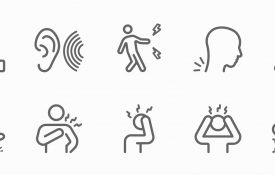
Pain Management
Personality tests are the center of countless psychological studies exploring targeted marketing, workplace dynamics, and different brain structures.

Personality Traits
Public trust in the police has remained flat for decades, a problem that has become especially salient due to recent events.

Policing and Law Enforcement
A scientific analysis upends the notion that people on the political right are more biased about their ideological views than are people on the left.

Political Differences
Why do we dawdle and delay, even on the most important tasks? Researchers explore the causes and consequences of procrastination.

Procrastination
Plenty of beliefs about human psychology are based on myth masquerading as facts. Psychological scientists have not only exposed the weak evidence for these notions, but can recommend strategies to help us to distinguish true science from bunk.

Pseudoscience
Psychological researchers are examining the complexities of racism and xenophobia at both the interpersonal and societal levels.

Racism and Discrimination
Psychological research explores how we evaluate, perceive, and choose whether to take risks.

Why does self-control fail, and how can we boost it? Researchers explore the mechanisms underlying this important ability and how it develops over time.

Self-Control
The #metoo movement has brought sexual harassment to the center of public consciousness, raising questions about the causes of predatory actions. Psychological research shows how feeling powerful relates to sexually coercive behavior.

Sexual Assault and Harassment
Insufficient sleep has been shown to have adverse effects at work, in driving, and even in court.

From the scent of flowers to the stench of hazardous chemicals, our sense of smell guides us through our environment and significantly influences our emotions, as scientists have discovered.

How does athletic engagement and competition affect our thoughts and behaviors? Learn what psychological science has uncovered.

New discoveries about the ill effects of psychological stress abound, but scientists are also learning about buffers to stress.

Psychological scientists delve into study strategies, math anxiety, reading comprehension, and more.

Studying and Learning
Research from APS on addiction and substance abuse.

Substance Abuse and Addiction
Scientists show how get-aways and enjoyable activities affect our work lives and relationships.

Taking a Break
Psychological research is fostering understanding of the important factors that contribute to effective teaching, from individual instruction to school climate.

The psychological mechanisms that lead us to have faith in certain people and be suspicious of others are vast. Learn what psychological researchers have discovered about interpersonal trust.

September 10 is World Suicide Prevention Day. Read about the steps that psychological scientists are taking to identify and help people at risk of taking their own lives.

Understanding and Preventing Suicide
Psychological science suggests that behavioral 'nudges' which aim to alter individuals' actions rather than their attitudes are essential to promoting vaccination against COVID-19 and other vaccine-preventable diseases.

Vaccination
The effects of playing video games on well-being seem to depend largely on why and how an individual chooses to partake.

Video Games
The way the brain and the human eye process visual stimuli, including illusions, is a thriving area of psychological science.

Researchers unravel the mystery of voting behavior, including why people vote in seemingly unpredictable or illogical ways.

How does weather, both ordinary and extreme, affect decision-making, behavior, and emotions?

Weather and Behavior
Research in psychological science reveals the causes and consequences of bullying behavior in the office.

Workplace Bullying
When done well, efforts to improve intergroup harmony at work can uplift individuals and lead entire organizations to perform at a higher level.

Workplace Diversity
Privacy overview.
- Skip to main content
- Skip to primary sidebar
IResearchNet
Psychology Research Paper Topics
In the list of psychology research paper topics below we have attempted to capture psychology’s vast and evolving nature in the 16 categories and more than 100 topics.
100+ Psychology Research Paper Topics
Research Paper Topics in History of Psychology
Academic Writing, Editing, Proofreading, And Problem Solving Services
Get 10% off with 24start discount code.
- Psychology Before 1900
- Psychology in the 20th Century
- Psychology Into the 21st Century
- Women and Minorities in Psychology
- Conducting Research on the History of Psychology
Research Paper Topics in Research Methodology and Analytic Techniques in Psychology
- Statistical Techniques and Analysis
- Nonexperimental Research Methods
- Experimental Designs
- Single-Subject Designs
- Qualitative Research
- Ethics of Psychological Research
Neuroscience Research Paper Topics
- Biological Psychology
- Neurotransmission
- Traditional Neuroscience Research Methods
- Imaging Techniques for the Localization of Brain Function
- Drugs and Behavior
- Behavioral Pharmacology
Research Paper Topics in Sensory Processes and Perception
- Psychophysics
- States of Consciousness
- Somatosensory Systems
Research Paper Topics in Evolution and Behavior
- Evolutionary Psychology: The Impact of Evolution on Human Behavior
- Evolutionary Perspectives on Mate Preferences
- Animal Learning and Behavior
- Animal Cognition
- Comparative Psychology
Research Paper Topics in Basic Learning Processes
- Classical Conditioning
- Recent Trends in Classical Conditioning
- Taste-Aversion Learning
- Operant Conditioning
- Recent Trends in Operant Conditioning
- Social Learning
- Stimulus Equivalence
Research Paper Topics in Individual Differences and Personality
- Psychometrics
- Testing and Assessment
- Personality Development
- Personality Psychology
- Intelligence
- Motivation and Emotion
Cognitive Psychology Research Paper Topics
- Memory: A Look Into the Past, Present, and Future
- Memory and Eyewitness Testimony
- Repressed and Recovered Memory
- Language and Language Development
- Thinking and Problem Solving
- Critical Thinking
- Artificial Intelligence
Developmental Psychology Research Paper Topics
- Prenatal Development and Infancy
- Childhood and Adolescence
- Adulthood and Aging: Perspectives on Adult Development
- Disabilities
- Death, Dying, and Bereavement
- Nature Versus Nurture
- Attention-Deficit/Hyperactivity Disorder: Myth or Mental Disorder?
Social Psychology Research Paper Topics
- Social Cognition
- Attitudes and Attitude Change
- Group Processes
- Social Influence
- The Nature of Love
- Prejudice and Stereotyping
- Leadership: Theory and Practice
Research Paper Topics in Health, Stress, and Coping
- Health Psychology
- Stress and Stressors
- Coping Skills
- Positive Psychology
- Human Performance in Extreme Environments
Behavior Disorders and Clinical Psychology Research Paper Topics
- Abnormal Psychology
- Ethics of Therapists
- Diagnostic and Statistical Manual of Mental Disorders (DSM)
- Anxiety Disorders
- Dissociative Disorders
- Personality Disorders
- Mood Disorders: An Overview
- Schizophrenia: Understanding a Split Mind
- Psychoactive Substance Use Disorders
- Psychotherapy
- Cognitive-Behavioral Therapy
- Family Therapy and Therapy With Children
- Pharmacotherapy
- Forensic Clinical Psychology: Sensationalism and Reality
- Sexual Offending Behavior
Applied Psychology Research Paper Topics
- Industrial and Organizational Psychology
- Human Factors
- Community Psychology
- Sport Psychology
- Environmental Psychology
- Psychology and the Law
- Applied Behavior Analysis
- Organizational Behavior Management
Research Paper Topics in Human Diversity
- Gender and Sexual Orientation
- Multiple Axes of Human Diversity
- Psychology and Religion
- Cross-Cultural Psychology and Research
- International Psychology
Mental Health Research Paper Topics
- Agoraphobia
- Alcohol Problems
- Alzheimer’s Disease
- Anorexia Nervosa and Bulimia Nervosa
- Antisocial Personality Disorder
- Attention Deficit/Hyperactivity Disorder (ADHD)
- Autism and Pervasive Developmental Disorders
- Borderline Personality Disorder
- Classifying Mental Disorders: Nontraditional Approaches
- Conduct Disorder
- Dependent Personality
- Mental Retardation and Mental Health
- Mood Disorders
- Narcissistic Personality Disorder
- Obsessive-Compulsive Disorder
- Panic Attacks
- Posttraumatic Stress Disorder (PTSD)
- Premenstrual Syndrome (PMS)
- Psychopathology
- Schizophrenia
- Sexual Disorders
- Somatization and Hypochondriasis
- Substance Abuse
Assessment and Psychotherapy Research Paper Topics
- Assessment of Mental Health in Older Adults
- Behavior Therapy
- Behavioral Medicine
- Biofeedback
- Brain Scanning/Neuroimaging
- Child Sexual Abuse
- Classifying Mental Disorders
- Clinical Assessment
- Cognitive Therapy
- Community Mental Health
- Constructivist Psychotherapies
- Coping with Stress
- Couples Therapy
- Depression—Applied Aspects
- Domestic Violence Intervention
- Family Therapy
- Hypnosis and the Psychological Unconscious
- Meditation and the Relaxation Response
- Personality Assessment
- Premenstrual Syndrome Treatment Interventions
- Psychoanalysis
- Psychopharmacology
- Sexual Dysfunction Therapy
- Standards for Psychotherapy
- Support Groups

For example, the early years of the 20th century witnessed the development and popularization of the now classic “schools of psychology” such as structuralism, functionalism, Gestalt psychology, and behaviorism. World War II and the Korean War spurred the development of modern clinical psychology. In the middle of the 20th century, individual schools rose to prominence and tended to dominate psychological research and theorizing. These dominant schools often clashed with clinical psychology. For example, disagreements between behaviorists and clinicians, which have their roots in the 1940s and 1950s, still persist.
Toward the end of the 1960s, the nature of the field began to change, and the face of modern psychology was forever altered. First, Ulrich Neisser’s 1967 book, Cognitive Psychology, ushered in the “cognitive revolution” and put behaviorism on the decline. Technological advances in computer technology, which allowed researchers to simulate human thought and memory processes and to create images of neurological processes, played an inestimable role in modern psychology’s metamorphosis. Likewise, advances in social concern and action increased psychologists’ awareness of psychology’s diversity and its ability to make significant contributions in these areas. To be sure, the face of contemporary psychology was changing drastically. In fact, in 1992 former American Psychological Association (APA) president George A. Miller believed that psychology had become “an intellectual zoo” (p. 40). Clearly, that situation has not changed, as psychology is evolving in the 21st century.
Nowhere are psychology’s expansion and change seen more clearly than in the evolution of the APA. Founded in 1892 by G. Stanley Hall at Clark University in Worcester, Massachusetts, the APA began with 31 charter members. Currently, there are over 60,000 APA members and 56 divisions with which these members and other interested psychologists can affiliate. The diversity of the APA divisions clearly reflects the changing face of contemporary psychology as well as represents wide subjects of psychological research. They include General Psychology (Division 1), the Study of Social Issues (Division 9), Clinical Psychology (Division 12), Pharmacology and Substance Abuse (Division 28), Mental Retardation and Developmental Disabilities (Division 33), Media Psychology (Division 46), International Psychology (Division 52), and Trauma Psychology (Division 56). Clearly, psychology research topics in the 21st century continue to be diverse and evolving.
We believe that our choice of traditional and cutting-edge research paper topics reflects contemporary psychology’s diverse nature. For example, the “traditional” research paper topics include the following:
The cutting-edge research paper topics include the following:
Browse examples of psychology research papers to find sample research paper on all topics in the list above. Whether the research paper deals with a traditional topic or a cutting-edge topic, you will find that it presents the materials in a decidedly contemporary manner. We hope that students will enjoy reading the research papers on different topics in psychology as much as we have enjoyed collecting them for you.

Psychology: Developing Topics & Research Questions
- About this Guide
- What Are Databases?
- About & Finding Databases
- Developing Topics & Research Questions
- Finding Books
- Scholarly & Popular Articles
- Reading Scholarly Articles
- Non-Database Resources
- Evaluating Information
- Requesting Materials from Other Libraries
- Citing in APA 7
- Getting Research Help
Developing a Research Question Takes Research
When the scope of your paper is too big, it's hard to dig through information and to write a paper wit any depth. The goal of most research papers in college is to seek a possible answer to a particular questions related to a topic. A research question, when not too broad or too narrow, helps guide and focus your paper.
The question should also be one in which you haven't decided on a pre-determined answer. You may find that looking for sources that provide a certain answer may be too limiting. The answer you are expecting might not be supported by evidence.
Brainstorm & do some pre-research
The research question isn't a question you make up at the top of your head. It's normal to start with a broad topic in mind. After doing some brainstorming about a topic, you will need to do some reading to find an angle to pursue, and, even then, your question may change as you find more information later.
Ask questions
From your pre-research, think about questions you might be able to ask regarding the topic. Most scholarly research examines fairly narrow topics and looks at relationships between concepts. One way to limit the scope of your topic is to ask who, what, where, when, why, and how questions.
Be flexible
It's okay to continue to tweak your question; the end result should be that you have answered the question you've laid out in the introduction, even if the introduction is the last paragraph you actually end up revising in your final paper.
Picking Your Topic IS Research
North Carolina State University (NCSU) Libraries, 3:10
OER Book Chapters
- The Qualities of a Good Research Question from LibreTexts
- Research Questions from Choosing & Using Sources: A Guide to Academic Research, Teaching & Learning, Ohio State University Libraries
Research is a Process
Anna Eisen (2:35)
Encourages students to develop background knowledge to create a research question. Research questions should have topic, question and significance. The narrator suggests using the following formulation: I’m studying _______________ to investigate ______________ in order to understand. Complex research questions take time to create.
Keeping your research question in mind, if you can answer TRUE to the statements below, your research question is probably workable.
- It cannot simply be answered with a yes/no.
- It has social significance/a problem associated with it.
- There is reliable evidence available to address it.
- It has appropriate scope.
Be careful about investigating questions that you think you already have the answer to.
Choosing a Manageable Research Topic
PfauLibrary (3:42)
- << Previous: About & Finding Databases
- Next: Keywords >>
- Last Updated: Feb 8, 2024 7:57 PM
- URL: https://libguides.mccd.edu/Psychology
MERRIMACK COLLEGE MCQUADE LIBRARY
- Get Started
What is a Research Question?
Developing a research question (northern kentucky university), developing a research question (indiana university).
- Find Books / E-books / DVDs
- Find Articles
- Find Video / Film
- Database Search Strategies
- Types of Resources
- Literature Review
- Evaluate Sources
- Cite Sources
- Annotated Bibliography
- PSY Websites
- PSY Organizations
- Government Resources
- Open Educational Resources (OER)
Contact a Librarian

A research question is a statement that defines what is to be studied. It is the core of the research project, study, or literature review. Your research question focuses the study, determines the methodology, and guides all stages of inquiry, analysis, and reporting.
Your research question should...
- Be focused
- Identify the problem you're writing about
- Establish significance

- << Previous: Get Started
- Next: Keywords >>
- Last Updated: Apr 9, 2024 12:15 PM
- URL: https://libguides.merrimack.edu/psychology
Thank you for visiting nature.com. You are using a browser version with limited support for CSS. To obtain the best experience, we recommend you use a more up to date browser (or turn off compatibility mode in Internet Explorer). In the meantime, to ensure continued support, we are displaying the site without styles and JavaScript.
- View all journals
- Explore content
- About the journal
- Publish with us
- Sign up for alerts
Collection 12 March 2023
Top 100 in Psychology - 2022
This collection highlights our most downloaded* psychology papers published in 2022. Featuring authors from around the world, these papers showcase valuable research from an international community.
You can also view the top papers across various subject areas here .
*Data obtained from SN Insights, which is based on Digital Science's Dimensions.

Cats learn the names of their friend cats in their daily lives
- Saho Takagi
- Atsuko Saito
- Hika Kuroshima
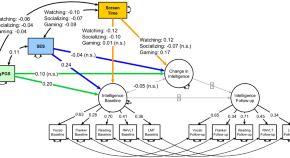
The impact of digital media on children’s intelligence while controlling for genetic differences in cognition and socioeconomic background
- Bruno Sauce
- Magnus Liebherr
- Torkel Klingberg

Reading on a smartphone affects sigh generation, brain activity, and comprehension
- Motoyasu Honma
- Yuri Masaoka
- Masahiko Izumizaki
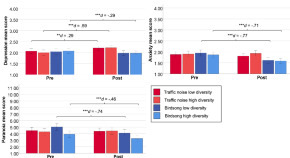
Birdsongs alleviate anxiety and paranoia in healthy participants
- J. Sundermann

SARS-CoV-2 spike protein induces cognitive deficit and anxiety-like behavior in mouse via non-cell autonomous hippocampal neuronal death
- Junyoung Oh
- Woo-Hyun Cho
- Sung Joong Lee
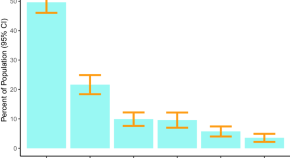
Prevalence, age of decision, and interpersonal warmth judgements of childfree adults
- Zachary P. Neal
- Jennifer Watling Neal

Acute and protracted abstinence from methamphetamine bidirectionally changes intrinsic excitability of indirect pathway spiny projection neurons in the dorsomedial striatum
- Sanghoon Choi
- Steven M. Graves
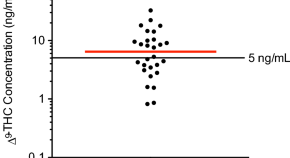
Indeterminacy of cannabis impairment and ∆ 9 -tetrahydrocannabinol (∆ 9 -THC) levels in blood and breath
- Gregory T. Wurz
- Michael W. DeGregorio
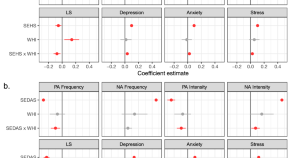
Perceiving societal pressure to be happy is linked to poor well-being, especially in happy nations
- Egon Dejonckheere
- Joshua J. Rhee
- Brock Bastian
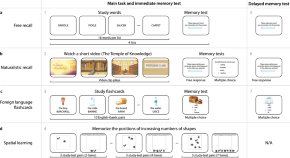
Fitness tracking reveals task-specific associations between memory, mental health, and physical activity
- Jeremy R. Manning
- Gina M. Notaro
- Paxton C. Fitzpatrick
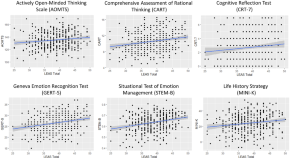
Higher emotional awareness is associated with greater domain-general reflective tendencies
- Michelle Persich
- William D. S. Killgore

Investigation of humans individual differences as predictors of their animal interaction styles, focused on the domestic cat
- Lauren R. Finka
- Lucia Ripari
- Marnie L. Brennan

Cichlids and stingrays can add and subtract ‘one’ in the number space from one to five
- V. Schluessel

Group VR experiences can produce ego attenuation and connectedness comparable to psychedelics
- David R. Glowacki
- Rhoslyn Roebuck Williams
- Mike Chatziapostolou
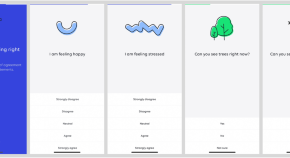

Smartphone-based ecological momentary assessment reveals mental health benefits of birdlife
- Ryan Hammoud
- Stefania Tognin
- Andrea Mechelli

Deep language algorithms predict semantic comprehension from brain activity
- Charlotte Caucheteux
- Alexandre Gramfort
- Jean-Rémi King
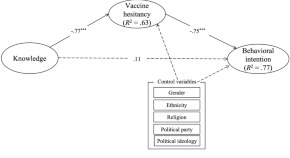
Misinformation of COVID-19 vaccines and vaccine hesitancy
- Sun Kyong Lee
- Juhyung Sun
- Shane Connelly
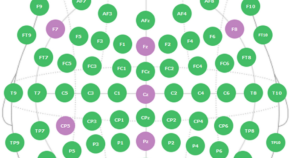
Children with autism spectrum disorder show atypical electroencephalographic response to processing contextual incongruencies
- Amparo V. Márquez-García
- Vasily A. Vakorin
- Sam M. Doesburg

Childhood temperament and adulthood personality differentially predict life outcomes
- Amanda J. Wright
- Joshua J. Jackson
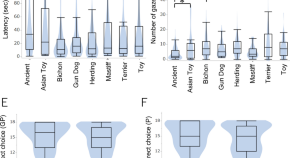
Identification of genes associated with human-canine communication in canine evolution
- Akiko Tonoike
- Ken-ichi Otaki
- Miho Nagasawa

Breath chemical markers of sexual arousal in humans
- G. Pugliese
- J. Williams
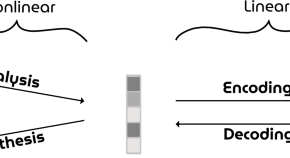
Hyperrealistic neural decoding for reconstructing faces from fMRI activations via the GAN latent space
- Thirza Dado
- Yağmur Güçlütürk
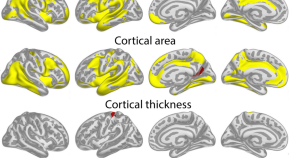
Brain aging differs with cognitive ability regardless of education
- Kristine B. Walhovd
- Lars Nyberg
- Anders M. Fjell

Short-sighted decision-making by those not vaccinated against COVID-19
- Julia G. Halilova
- Samuel Fynes-Clinton
- R. Shayna Rosenbaum

Groove rhythm stimulates prefrontal cortex function in groove enjoyers
- Takemune Fukuie
- Kazuya Suwabe
- Hideaki Soya
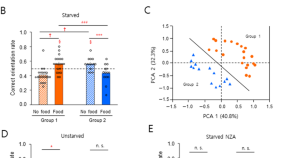
Human magnetic sense is mediated by a light and magnetic field resonance-dependent mechanism
- Kwon-Seok Chae
- Soo-Chan Kim
- Yongkuk Kim

Innovative composite tool use by Goffin’s cockatoos ( Cacatua goffiniana )
- Antonio J. Osuna-Mascaró
- Roger Mundry
- Alice M. I. Auersperg

Is a downwards head tilt a cross-cultural signal of dominance? Evidence for a universal visual illusion
- Zachary Witkower
- Alexander K. Hill
- Jessica L. Tracy

Systematic review and meta-analysis of cognitive impairment in myalgic encephalomyelitis/chronic fatigue syndrome (ME/CFS)
- Mehdi Aoun Sebaiti
- Mathieu Hainselin
- François Jérôme Authier
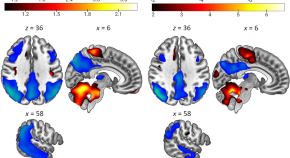
Identification and validation of Alzheimer’s disease-related metabolic brain pattern in biomarker confirmed Alzheimer’s dementia patients
- Matej Perovnik
- Petra Tomše

Impact of fasting on stress systems and depressive symptoms in patients with major depressive disorder: a cross-sectional study
- Britta Stapel
- Daniela Fraccarollo
- Kai G. Kahl

Bio-behavioral synchrony is a potential mechanism for mate selection in humans
- Nathalie klein Selle

The cognitive and psychiatric subacute impairment in severe Covid-19
- Pedro J. Serrano-Castro
- Francisco J. Garzón-Maldonado
- Fernando Rodríguez de Fonseca
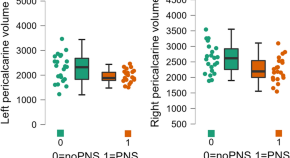
CNS imaging characteristics in fibromyalgia patients with and without peripheral nerve involvement
- Hans-Christoph Aster
- Dimitar Evdokimov
- Claudia Sommer
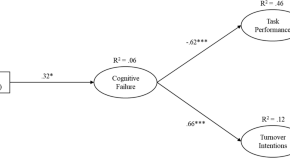
The effects of contracting Covid-19 on cognitive failures at work: implications for task performance and turnover intentions
- James W. Beck
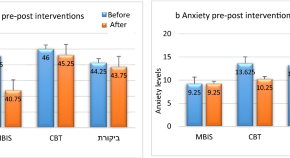
The effects of mindfulness meditation versus CBT for anxiety on emotional distress and attitudes toward seeking mental health treatment: a semi-randomized trial
- Daniela Aisenberg-Shafran
- Liav Shturm
Trait emotional intelligence in American pilots
- Zachary Dugger
- K. V. Petrides
- Bernadette McCrory

Mindfulness meditation increases default mode, salience, and central executive network connectivity
- Benno Bremer
- Kathrin Koch

Effect of MIND diet intervention on cognitive performance and brain structure in healthy obese women: a randomized controlled trial
- Golnaz Arjmand
- Mojtaba Abbas-Zadeh
- Mohammad Hassan Eftekhari

Bodily ownership of an independent supernumerary limb: an exploratory study
- Kohei Umezawa
- Yuta Suzuki
- Yoichi Miyawaki
Anabolic–androgenic steroid use is associated with psychopathy, risk-taking, anger, and physical problems
- Bryan S. Nelson
- Tom Hildebrandt
- Pascal Wallisch
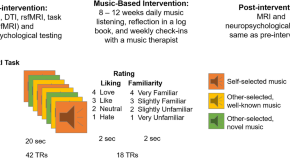
Longitudinal changes in auditory and reward systems following receptive music-based intervention in older adults
- Milena Aiello Quinci
- Alexander Belden
- Psyche Loui
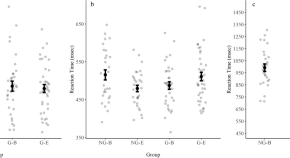
Reaction time and working memory in gamers and non-gamers
- Ronnie Lidor

Simulated visual hallucinations in virtual reality enhance cognitive flexibility
- Clara Rastelli
- Antonino Greco
- Nicola De Pisapia

Rapid but specific perceptual learning partially explains individual differences in the recognition of challenging speech
- Karen Banai
- Hanin Karawani
- Yizhar Lavner
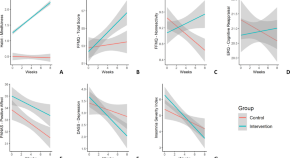
Mindfulness-based online intervention increases well-being and decreases stress after Covid-19 lockdown
- Francesco Bossi
- Francesca Zaninotto
- Emiliano Ricciardi
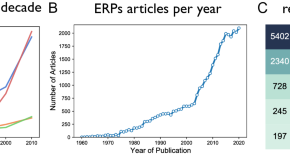
Automated meta-analysis of the event-related potential (ERP) literature
- Thomas Donoghue
- Bradley Voytek
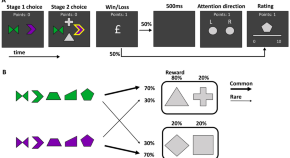
Model-based learning retrospectively updates model-free values
- Maaike M. H. Van Swieten
- Sanjay G. Manohar

Interaction with the future self in virtual reality reduces self-defeating behavior in a sample of convicted offenders
- Jean-Louis van Gelder
- Liza J. M. Cornet
- Job van der Schalk
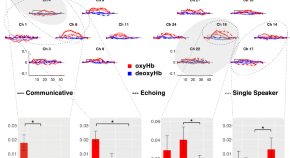
The newborn brain is sensitive to the communicative function of language
- Bálint Forgács
- Tibor Tauzin
- Judit Gervain
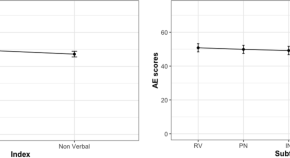
Cognitive profiles in children and adolescents with Down syndrome
- Sara Onnivello
- Francesca Pulina
- Silvia Lanfranchi

Short term treatment with a cocktail of rapamycin, acarbose and phenylbutyrate delays aging phenotypes in mice
- Warren Ladiges

Effects of exploring a novel environment on memory across the lifespan
- Judith Schomaker
- Valentin Baumann
- Marit F. L. Ruitenberg
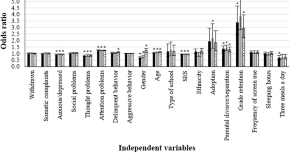
The impact of psychopathology on academic performance in school-age children and adolescents
- Mireia Pagerols
- Raquel Prat

Effect of berry-based supplements and foods on cognitive function: a systematic review
- Negar Bonyadi
- Neda Dolatkhah
- Maryam Hashemian
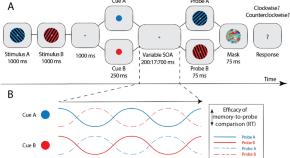
Attention rhythmically samples multi-feature objects in working memory
- Samson Chota
- Stefan Van der Stigchel

Functional brain connectomes reflect acute and chronic cannabis use
- J. G. Ramaekers
- N. L. Mason
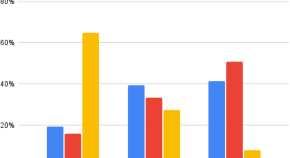
Simple questionnaires outperform behavioral tasks to measure socio-emotional skills in students
- Mélusine Boon-Falleur
- Adrien Bouguen
- Coralie Chevallier

Neuronal effects of glabellar botulinum toxin injections using a valenced inhibition task in borderline personality disorder
- Tillmann H. C. Kruger
- Jara Schulze
- M. Axel Wollmer

Naloxone’s dose-dependent displacement of [ 11 C]carfentanil and duration of receptor occupancy in the rat brain
- Kelly A. O’Conor
- Nora D. Volkow

rs-fMRI and machine learning for ASD diagnosis: a systematic review and meta-analysis
- Caio Pinheiro Santana
- Emerson Assis de Carvalho
- Lucelmo Lacerda de Brito
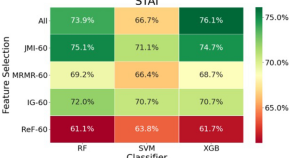
Machine learning and expression analyses reveal circadian clock features predictive of anxiety
- Rebeccah Overton
- Krista Ingram
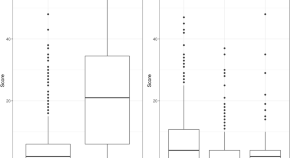
Impact of the COVID-19 pandemic on oral health and psychosocial factors
- Antonio Ciardo
- Marlinde M. Simon

Facial asymmetry in dogs with fear and aggressive behaviors towards humans
- Marcello Siniscalchi
- Serenella d’Ingeo
- Angelo Quaranta
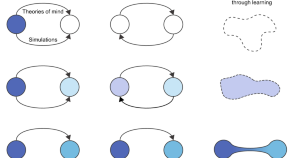
Superposition mechanism as a neural basis for understanding others
- Wataru Noguchi
- Hiroyuki Iizuka
- Shigeru Taguchi

Influence of diurnal phase on behavioral tests of sensorimotor performance, anxiety, learning and memory in mice
- Chi-Hui Tsao
- Jonathan Flint
- Guo-Jen Huang
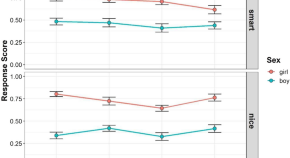
Gender stereotypes about intellectual ability in Japanese children
- Mako Okanda
- Xianwei Meng
- Yusuke Moriguchi
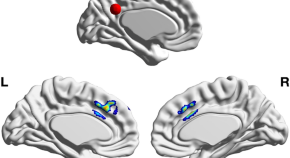
Meta-analytic evidence that mindfulness training alters resting state default mode network connectivity
- Hadley Rahrig
- David R. Vago
- Kirk Warren Brown
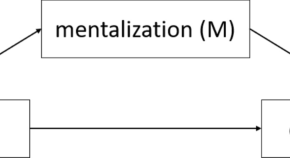
Mentalization and dissociation after adverse childhood experiences
- J. Wagner-Skacel
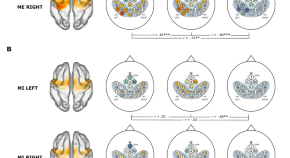
fMRI-based validation of continuous-wave fNIRS of supplementary motor area activation during motor execution and motor imagery
- Franziska Klein
- Stefan Debener
- Cornelia Kranczioch
Predictors of adherence to public health behaviors for fighting COVID-19 derived from longitudinal data
- Birga M. Schumpe
- Caspar J. Van Lissa
- N. Pontus Leander

High-resolution cortical parcellation based on conserved brain landmarks for localization of multimodal data to the nearest centimeter
- Hari McGrath
- Hitten P. Zaveri
- Dennis D. Spencer

Validation of the forced swim test in Drosophila , and its use to demonstrate psilocybin has long-lasting antidepressant-like effects in flies
- C. D. Nichols
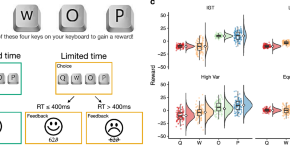
Time pressure changes how people explore and respond to uncertainty
- Charley M. Wu
- Eric Schulz
- Maarten Speekenbrink

Functional connectivity of brain networks with three monochromatic wavelengths: a pilot study using resting-state functional magnetic resonance imaging
- Marc Argilés
- Bernat Sunyer-Grau
- Cleofé Peña-Gómez

Behavioral coping phenotypes and associated psychosocial outcomes of pregnant and postpartum women during the COVID-19 pandemic
- Denise M. Werchan
- Cassandra L. Hendrix
- Natalie H. Brito

Spontaneous activity patterns in human motor cortex replay evoked activity patterns for hand movements
- Tomer Livne
- Maurizio Corbetta
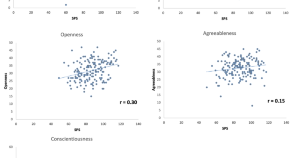
Sensory processing sensitivity and somatosensory brain activation when feeling touch
- Michael Schaefer
- Anja Kühnel
- Matti Gärtner
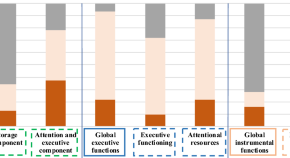
The interplay between cognition, depression, anxiety, and sleep in primary Sjogren’s syndrome patients
- Radjiv Goulabchand
- Elodie Castille
- Philippe Guilpain

Dynamics of adolescents’ smartphone use and well-being are positive but ephemeral
- Laura Marciano
- Charles C. Driver
- Anne-Linda Camerini
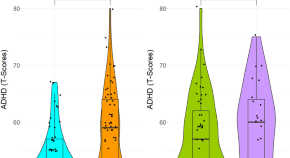
ADHD symptoms and use of anabolic androgenic steroids among male weightlifters
- Emilie Kildal
- Bjørnar Hassel
- Astrid Bjørnebekk
Facial mask personalization encourages facial mask wearing in times of COVID-19
- Johanna Palcu
- Martin Schreier
- Chris Janiszewski

Exploring brain activity for positive and negative emotions by means of EEG microstates
- Giulia Prete
- Pierpaolo Croce
- Paolo Capotosto
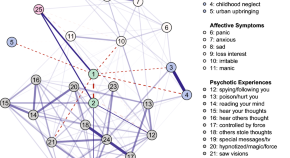
A network approach to relationships between cannabis use characteristics and psychopathology in the general population
- Linda T. Betz
- Nora Penzel
- Joseph Kambeitz
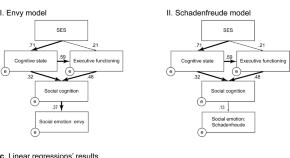
Socioeconomic status impacts cognitive and socioemotional processes in healthy ageing
- Joaquín Migeot
- Mariela Calivar
- Sol Fittipaldi

Parental praise and children’s exploration: a virtual reality experiment
- Eddie Brummelman
- Stathis Grapsas
- Katinka van der Kooij

Africans and Europeans differ in their facial perception of dominance and sex-typicality: a multidimensional Bayesian approach
- Vojtěch Fiala
- Petr Tureček
- Karel Kleisner

Brain information processing capacity modeling
- Tongtong Li
- Karl Friston
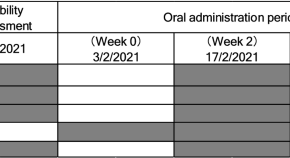
Safety evaluation of β-nicotinamide mononucleotide oral administration in healthy adult men and women
- Yuichiro Fukamizu
- Yoshiaki Uchida
- Takanobu Sakurai

Neural oscillations promoting perceptual stability and perceptual memory during bistable perception
- Michael Zhu
- Richard Hardstone

The effects of probiotics on risk and time preferences
- Aline M. Dantas
- Alexander T. Sack
- Teresa Schuhmann

Media-multitasking and cognitive control across the lifespan
- Natasha Matthews
- J. B. Mattingley

Depressive symptoms reduce when dorsolateral prefrontal cortex-precuneus connectivity normalizes after functional connectivity neurofeedback
- Jessica Elizabeth Taylor
- Takashi Yamada
- Tomokazu Motegi

Intranasal insulin modulates cerebrospinal fluid markers of neuroinflammation in mild cognitive impairment and Alzheimer’s disease: a randomized trial
- Derek Kellar
- Thomas Register
- Suzanne Craft
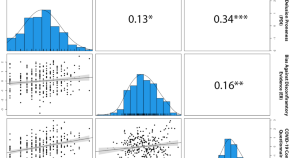
COVID-19 conspiracy ideation is associated with the delusion proneness trait and resistance to update of beliefs
- O. Horntvedt
- P. Petrovic

Hand constraint reduces brain activity and affects the speed of verbal responses on semantic tasks
- Kunihito Tobita
- Shogo Makioka

Impaired grouping of ambient facial images in autism
- Bayparvah Kaur Gehdu
- Katie L. H. Gray
- Richard Cook
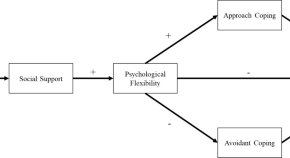
Social support, psychological flexibility and coping mediate the association between COVID-19 related stress exposure and psychological distress
- Richard Tindle
- Ahmed A. Moustafa
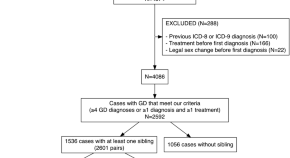
Gender dysphoria in twins: a register-based population study
- Georgios Karamanis
- Maria Karalexi
- Fotios C. Papadopoulos

Learning from communication versus observation in great apes
- Hanna Marno
- Christoph J. Völter
Quick links
- Explore articles by subject
- Guide to authors
- Editorial policies
11 social psychology research topics to explore in 2024
Last updated
6 March 2024
Reviewed by
Miroslav Damyanov
Social psychology is a constantly evolving field of study. It explores how our environment and other people influence our thoughts, feelings, beliefs, and goals. Social psychology uncovers how social interaction, perception, and influence impact individuals and groups.
Taking a specific path to follow your interests and learn more about available areas can narrow your focus to find the ideal research project.
Let’s take a look at current topics in social psychology to inspire your research.
- Understanding social psychology research
Psychologists conduct experiments to better understand how different environmental factors and the influence of other people shape feelings and behaviors.
Research projects explore various topics, from how a position of power can change behavior to the impact of positive social interactions.
Various research designs allow researchers to develop projects that range from observational to experimental.
What is an example of social psychology research?
Zimbardo randomly assigned college students the roles of prison guards or prisoners in a simulated prison environment. Despite knowing their roles were random, the guards exhibited increasing cruelty towards the prisoners.
Researchers halted the study after six days due to extreme psychological distress. It revealed the profound impact of social roles and situations on human behavior, highlighting how people can adopt negative behaviors when given authority, even in a controlled setting.
- How to choose social psychology research topics
Social psychology is a diverse, highly studied area of science, so developing a unique project on a relevant topic can be challenging.
When choosing a subject, begin by exploring your interests. After considering questions you'd like answers to and topics that intrigue you, narrow your scope. Explore specific areas of research, research designs, and subtopics.
Once you've narrowed down your choices, seek literature and past studies on the subject. Consider how past research can raise additional questions about the topic.
Develop your ideas by determining how to measure and test your research questions.
Once you have a firm plan for your project, talk to your instructor for advice and approval before launching your studies.
- Social psychology research topics
Social psychology has many nuances that influence human beliefs and behavior. Various elements of situations and relationships affect short- and long-term emotions and actions.
The major research areas in social psychology are an ideal starting point to investigate as part of a psychology research project.
These key focus areas within social psychology can be compelling psychology research topics:
1. Attitudes and attitude change
Research projects surrounding attitudes generally examine the components of attitudes and how they develop and can be changed.
The three components of attitude are affective, behavioral, and cognitive. They’re also known as the ABCs.
We form attitudes through a combination of upbringing, experience, and genetics. People can self-measure them in surveys or through researchers’ observations.
Attitudes can change due to influence and environmental factors. They hugely affect human behavior, making them an important research topic in social psychology.
2. Attachment and relationships
Social connections shape our lives from the earliest moments, taking various forms that significantly impact our well-being. These connections have numerous advantages, such as heightened happiness and satisfaction.
Social psychology explores these connections, examining diverse attachment styles to explain love, friendship, and attraction.
Research in this domain investigates the repercussions of poorly formed social bonds and seeks to answer questions about how relationships influence group behavior.
Additionally, studies in social psychology dissect the elements contributing to attraction, shedding light on the intricate dynamics that shape our social bonds and interactions.
3. Authority and leadership
As revealed in the Stanford Experiment, authority can directly affect behavior.
However, social psychology can further delve into the dynamics of people interacting with those in leadership roles.
Milgram's Obedience to Authority study exemplifies this exploration. Stanley Milgram wanted to investigate how easily authority figures could influence people to commit atrocities.
In this study, participants assumed the role of teachers administering electric shocks to learners for incorrect answers. 65% delivered 450 volts of electricity under the directive of an authority figure.
Research can consider the positive or negative elements of authority based on specific applications, settings, and environments.
For example, we might consider obedience to authority positive in the workplace or classroom.
Social psychology research about groups delves into how behavior changes in group settings.
Groups form for various reasons, and everything from leadership to group dynamics can impact how people behave. These behavioral changes can be beneficial or harmful.
Research into group behavior can focus on decision-making, internal conflicts, conflicts with other groups, how groups affect individual identities, and much more.
Studies can also investigate how positive group behaviors can influence someone.
5. Prejudice
Prejudice and discrimination take different forms, which people may not be aware of. The origin and consequences of prejudice present many topics of study for researchers.
Topics related to how prejudices form and why people maintain inaccurate stereotypes can uncover why people depend on stereotypes to make decisions.
Many studies focus on the effects of discrimination and how to reduce prejudice.
Research in this category can overlap with many other categories. For instance, group behavior and social influences can contribute to the formation of stereotypes and social categorization.
6. Self and social identity
Many elements form the human perception of self. How we perceive ourselves may be substantially different from the viewpoint of others.
Social psychologists are interested in learning how a person’s self-perception can influence factors like behavior and internal feelings like confidence.
Our concept of self derives from various sources, such as abilities, social comparisons, interactions with others, and status.
Researching how the perception of the inner self impacts social behaviors can unveil how social factors influence critical feelings like self-esteem.
7. Pro- and anti-social behavior
How people’s social surroundings impact the way they respond to certain situations is defined as pro- or anti-social behavior.
Positive and negative behaviors are based on accepted social norms. How someone responds during a specific event can reinforce or undermine those norms.
For example, helping a stranger is prosocial, while vandalism is antisocial behavior.
Studies have shown that prosocial behavior is contagious: Those who experience or observe it are more likely to help others.
Antisocial behavior can have a similar effect but in a negative direction. Observing seemingly harmless acts, like littering and graffiti, can weaken social norms. This potentially invites more dangerous antisocial behavior.
Researchers can elaborate on this knowledge to consider why people help others without considering personal costs. They can also dig into what deters someone from taking an action they know is "the right thing to do."
Exploring how society impacts positive and negative behaviors can shed light on ways to reduce negative behavior.
8. Social influence
Persuasion, peer pressure, obedience, and conformity are all forms of social influence. Like other areas of social psychology, these influences can be positive or negative.
One of the earliest studies on social influence was Soloman Asch’s Conformity Line Experiment .
Researchers put a participant in a test with seven conformists without knowing the conformists weren't true participants. Researchers asked them to compare the image of a target line with lines A, B, and C on another image.
Early in the experiment, all conformists answered correctly, followed by the participant, who was always last.
After a few rounds, the conformists began to provide wrong answers unanimously. On average, about a third of participants followed along with conformists to confirm clearly incorrect answers. 75% of participants confirmed at least one wrong answer.
The control group had no conformists. Less than 1% of participants gave the wrong answer.
Doctor and author Robert Cialdini takes the concept of influence further. He identified six universal principles of influence and persuasion to help people defend against dishonest influences.
His studies conclude that these influences can sway people:
Reciprocation: The feeling we should repay what someone has provided
Social proof: When unsure about a decision, we follow the actions of others
Liking: We generally agree with people we like and want them to agree with us
Authority: We are more likely to say yes to authority figures
Scarcity: We want more of what is less available
Commitment and consistency: Once we make a choice, we follow it with corresponding actions to justify the decision (even if we no longer believe in the choice)
Researchers can study how social influence guides the decision-making process and explore the positive and negative effects of conformity. Other experiments can explore the consequences of peer pressure and whether it can be beneficial.
9. Social cognition
In the most basic sense, cognition is the brain gathering and understanding knowledge through sensations, thoughts, and experiences. It allows us to make sense of new information.
Social cognition is how the brain processes information about individuals and groups of people. It includes the role of heuristics . These mental shortcuts enable us to function without constantly stopping to interpret everything in the environment.
Research under the umbrella of social cognition can explore first impressions, how appearance affects our judgment, and how social interactions affect behavior.
These studies can help psychologists understand how someone’s perception of social norms affects their self-image and behavior.
10. Violence and aggression
Exploration into violence and aggression attempts to better understand the factors and situations that cause aggression and how it impacts behaviors.
Several types of aggressive behavior exist, ranging from gossiping to physical violence. Studies in this area examine the different types of aggression and the variables contributing to aggressive behavior.
For instance, a pattern of aggression may relate to witnessing the behavior of a family member or traumatic experiences. Conversely, situational variables may trigger a single incidence of aggression.
A greater understanding of the role of social learning in aggressive behavior can lead to research about how social norms and public policy can decrease violent behavior.
Learning more about the variables contributing to aggression and violence means researchers can use new knowledge to work toward solutions.
11. Social representations
Social representations are a form of heuristics: a set of beliefs that make something unfamiliar easily understood. They allow people to apply specific bits of evidence-based data to individuals’ or groups’ actions to make ideas more familiar.
Researchers may study the role of social representations in making new psychological or scientific information accessible to the average person. Studies may explore how we make sense of new information and how people organize and separate facts for rapid learning.
Get started today
Go from raw data to valuable insights with a flexible research platform
Editor’s picks
Last updated: 21 December 2023
Last updated: 16 December 2023
Last updated: 6 October 2023
Last updated: 25 November 2023
Last updated: 12 May 2023
Last updated: 15 February 2024
Last updated: 11 March 2024
Last updated: 12 December 2023
Last updated: 18 May 2023
Last updated: 6 March 2024
Last updated: 10 April 2023
Last updated: 20 December 2023
Latest articles
Related topics, log in or sign up.
Get started for free
Research Question Examples 🧑🏻🏫
25+ Practical Examples & Ideas To Help You Get Started
By: Derek Jansen (MBA) | October 2023
A well-crafted research question (or set of questions) sets the stage for a robust study and meaningful insights. But, if you’re new to research, it’s not always clear what exactly constitutes a good research question. In this post, we’ll provide you with clear examples of quality research questions across various disciplines, so that you can approach your research project with confidence!
Research Question Examples
- Psychology research questions
- Business research questions
- Education research questions
- Healthcare research questions
- Computer science research questions
Examples: Psychology
Let’s start by looking at some examples of research questions that you might encounter within the discipline of psychology.
How does sleep quality affect academic performance in university students?
This question is specific to a population (university students) and looks at a direct relationship between sleep and academic performance, both of which are quantifiable and measurable variables.
What factors contribute to the onset of anxiety disorders in adolescents?
The question narrows down the age group and focuses on identifying multiple contributing factors. There are various ways in which it could be approached from a methodological standpoint, including both qualitatively and quantitatively.
Do mindfulness techniques improve emotional well-being?
This is a focused research question aiming to evaluate the effectiveness of a specific intervention.
How does early childhood trauma impact adult relationships?
This research question targets a clear cause-and-effect relationship over a long timescale, making it focused but comprehensive.
Is there a correlation between screen time and depression in teenagers?
This research question focuses on an in-demand current issue and a specific demographic, allowing for a focused investigation. The key variables are clearly stated within the question and can be measured and analysed (i.e., high feasibility).

Examples: Business/Management
Next, let’s look at some examples of well-articulated research questions within the business and management realm.
How do leadership styles impact employee retention?
This is an example of a strong research question because it directly looks at the effect of one variable (leadership styles) on another (employee retention), allowing from a strongly aligned methodological approach.
What role does corporate social responsibility play in consumer choice?
Current and precise, this research question can reveal how social concerns are influencing buying behaviour by way of a qualitative exploration.
Does remote work increase or decrease productivity in tech companies?
Focused on a particular industry and a hot topic, this research question could yield timely, actionable insights that would have high practical value in the real world.
How do economic downturns affect small businesses in the homebuilding industry?
Vital for policy-making, this highly specific research question aims to uncover the challenges faced by small businesses within a certain industry.
Which employee benefits have the greatest impact on job satisfaction?
By being straightforward and specific, answering this research question could provide tangible insights to employers.
Examples: Education
Next, let’s look at some potential research questions within the education, training and development domain.
How does class size affect students’ academic performance in primary schools?
This example research question targets two clearly defined variables, which can be measured and analysed relatively easily.
Do online courses result in better retention of material than traditional courses?
Timely, specific and focused, answering this research question can help inform educational policy and personal choices about learning formats.
What impact do US public school lunches have on student health?
Targeting a specific, well-defined context, the research could lead to direct changes in public health policies.
To what degree does parental involvement improve academic outcomes in secondary education in the Midwest?
This research question focuses on a specific context (secondary education in the Midwest) and has clearly defined constructs.
What are the negative effects of standardised tests on student learning within Oklahoma primary schools?
This research question has a clear focus (negative outcomes) and is narrowed into a very specific context.
Need a helping hand?
Examples: Healthcare
Shifting to a different field, let’s look at some examples of research questions within the healthcare space.
What are the most effective treatments for chronic back pain amongst UK senior males?
Specific and solution-oriented, this research question focuses on clear variables and a well-defined context (senior males within the UK).
How do different healthcare policies affect patient satisfaction in public hospitals in South Africa?
This question is has clearly defined variables and is narrowly focused in terms of context.
Which factors contribute to obesity rates in urban areas within California?
This question is focused yet broad, aiming to reveal several contributing factors for targeted interventions.
Does telemedicine provide the same perceived quality of care as in-person visits for diabetes patients?
Ideal for a qualitative study, this research question explores a single construct (perceived quality of care) within a well-defined sample (diabetes patients).
Which lifestyle factors have the greatest affect on the risk of heart disease?
This research question aims to uncover modifiable factors, offering preventive health recommendations.

Examples: Computer Science
Last but certainly not least, let’s look at a few examples of research questions within the computer science world.
What are the perceived risks of cloud-based storage systems?
Highly relevant in our digital age, this research question would align well with a qualitative interview approach to better understand what users feel the key risks of cloud storage are.
Which factors affect the energy efficiency of data centres in Ohio?
With a clear focus, this research question lays a firm foundation for a quantitative study.
How do TikTok algorithms impact user behaviour amongst new graduates?
While this research question is more open-ended, it could form the basis for a qualitative investigation.
What are the perceived risk and benefits of open-source software software within the web design industry?
Practical and straightforward, the results could guide both developers and end-users in their choices.
Remember, these are just examples…
In this post, we’ve tried to provide a wide range of research question examples to help you get a feel for what research questions look like in practice. That said, it’s important to remember that these are just examples and don’t necessarily equate to good research topics . If you’re still trying to find a topic, check out our topic megalist for inspiration.

Psst... there’s more!
This post was based on one of our popular Research Bootcamps . If you're working on a research project, you'll definitely want to check this out ...
You Might Also Like:

Submit a Comment Cancel reply
Your email address will not be published. Required fields are marked *
Save my name, email, and website in this browser for the next time I comment.
- Print Friendly
- Bipolar Disorder
- Therapy Center
- When To See a Therapist
- Types of Therapy
- Best Online Therapy
- Best Couples Therapy
- Best Family Therapy
- Managing Stress
- Sleep and Dreaming
- Understanding Emotions
- Self-Improvement
- Healthy Relationships
- Student Resources
- Personality Types
- Guided Meditations
- Verywell Mind Insights
- 2023 Verywell Mind 25
- Mental Health in the Classroom
- Editorial Process
- Meet Our Review Board
- Crisis Support
Developmental Psychology Topics
Topics for research, papers, and other projects
Kendra Cherry, MS, is a psychosocial rehabilitation specialist, psychology educator, and author of the "Everything Psychology Book."
:max_bytes(150000):strip_icc():format(webp)/IMG_9791-89504ab694d54b66bbd72cb84ffb860e.jpg)
Emily is a board-certified science editor who has worked with top digital publishing brands like Voices for Biodiversity, Study.com, GoodTherapy, Vox, and Verywell.
:max_bytes(150000):strip_icc():format(webp)/Emily-Swaim-1000-0f3197de18f74329aeffb690a177160c.jpg)
- Childhood Topics
- Adolescence Topics
- Adulthood Topics
- How to Choose
- Tips for Students
Are you looking for a developmental psychology topic for a psychology paper , experiment, or science fair project? Topics you might pick can range from prenatal development to health during the final stages of life.
Developmental psychology is a broad topic that involves studying how people grow and change throughout their whole lifetime. Topics don't just include physical growth but also the emotional, cognitive, and social development that people experience at different stages of their lives.
At a Glance
The following are just a few different topics that might help inspire you. Remember, these are just ideas to help you get started. You might opt to explore one of these areas, or you might think of a related question that interests you as well.
Developmental Psychology Topics on Childhood
- Could packaging nutritious foods in visually appealing ways encourage children to make healthier food choices?
- Do children who listen to music while studying perform better or worse on exams?
- Do students who eat breakfast perform better in school than those who do not eat breakfast?
- Does birth order have an impact on procrastination ? Are first-borns less likely to procrastinate? Are last-borns more likely to put off tasks until the last minute?
- Does teaching infants sign language help or hinder the language acquisition process?
- How do parenting styles impact a child's level of physical activity? Are children raised by parents with permissive or uninvolved parents less active than those raised by parents with authoritative or authoritarian styles?
- How does bullying impact student achievement? Are bullied students more likely to have worse grades than their non-bullied peers?
- Which type of reinforcement works best for getting students to complete their homework: a tangible reward (such as a piece of candy) or social reinforcement (such as offering praise when homework is completed on time)?
Developmental Psychology Topics on Adolescence
- What factors tend to influence the onset of depression in teens and young adults?
- How do peer relationships influence identity formation during adolescence and young adulthood?
- What impact do parent-child relationships have in predicting substance use among teens and young adults?
- How does early substance use during adolescence impact impulsivity and risk-taking during early adulthood?
- How does technology use during adolescence influence social and emotional development?
- How does social media use influence body image among teens?
- What factors contribute to success during the transition from the teen years to early adulthood?
- How do cultural differences impact different aspects of adolescent development?
Developmental Psychology Topics on Adulthood
- Are older adults who rate high in self-efficacy more likely to have a better memory than those with low self-efficacy?
- Do the limits of short-term memory change as we age? How do the limits of short-term memory compare at ages, 15, 25, 45, and 65?
- Do mental games such as word searches, Sudoku, and word matching help elderly adults keep their cognitive skills sharp?
- How do explanations for the behavior of others change as we age? Are younger adults more likely to blame internal factors for events and older adults more likely to blame external variables?
Choosing Developmental Psychology Topics
Developmental psychology is a huge and diverse subject, so picking a topic isn't always easy. Some tips that can help you choose a good developmental psychology topic include:
- Focus on a specific topic : Make sure that your topic isn't too broad to avoid getting overwhelmed by the amount of information available
- Have a clear question or hypothesis : Your research question should be focused and clearly defined
- Do some background research : Spend some time reviewing the existing literature to get a better idea about what you want to cover with your topic
- Consider developmental theories : You might consider analyzing your topic through the lens of a particular theory of developmental psychology
- Check out recent research : Use research databases to find the most recently published research on your topic
Before you start working on any paper, experiment, or science project, the first thing you need to do is understand the rules your instructor has established for the assignment.
Also, be sure to check the official guidelines given by your teacher. If you are not sure about these guidelines, ask your instructor if there are any specific requirements before you get started on your research .
If you are going to actually conduct an experiment , you need to present your idea to your instructor to gain their permission before going forward. In some cases, you might have to also present your plan to your school's Institutional Review Board.
Tips for Researching Developmental Psychology Topics
After you have gotten to move forward with your chosen topic, the next step is to do some background research. This step is essential! If you are writing a paper, the information you find will make up your literature review.
If you are performing an experiment, it will provide background information for the introduction of your lab report . For a psychology science project, this research will help you in your presentation and can help you decide how to best approach your own experiment.
What This Means For You
Choosing a topic for a developmental psychology experiment, paper, or project can be tough! The ideas above can be a great place to start, but you might also consider questions you've had about your own life. Once you have a general idea for your topic, narrow it down, do some background research and talk to your instructor.
Nielsen M, Haun D. Why developmental psychology is incomplete without comparative and cross-cultural perspectives . Philos Trans R Soc Lond B Biol Sci . 2016;371(1686):20150071. doi:10.1098/rstb.2015.0071
Leite DFB, Padilha MAS, Cecatti JG. Approaching literature review for academic purposes: The Literature Review Checklist . Clinics (Sao Paulo) . 2019;74:e1403. Published 2019 Nov 25. doi:10.6061/clinics/2019/e1403
Grady C. Institutional review boards: Purpose and challenges . Chest . 2015;148(5):1148-1155. doi:10.1378/chest.15-0706
Kim WO. Institutional review board (IRB) and ethical issues in clinical research . Korean Journal of Anesthesiology . 2012;62(1):3-12. doi:10.4097/kjae.2012.62.1.3
By Kendra Cherry, MSEd Kendra Cherry, MS, is a psychosocial rehabilitation specialist, psychology educator, and author of the "Everything Psychology Book."

IMAGES
VIDEO
COMMENTS
Cognitive psychology is the branch that focuses on the interactions of thinking, emotion, creativity, and problem-solving. It also explores the reasons humans think the way they do. This topic involves exploring how people think by measuring intelligence, thoughts, and cognition. Here are some research question ideas: 6.
Examples of systemic racism-related psychology research topics include: Access to mental health resources based on race. The prevalence of BIPOC mental health therapists in a chosen area. The impact of systemic racism on mental health and self-worth. Racism training for mental health workers.
Topics of Psychology Research Related to Human Cognition. Some of the possible topics you might explore in this area include thinking, language, intelligence, and decision-making. Other ideas might include: Dreams. False memories. Attention. Perception.
40+ Cognitive Psychology Topics. The role of working memory in problem-solving. Cognitive effects of sleep deprivation. Neural basis of attention and focus. Influence of language on cognitive development. Decision-making biases in economic behavior. The psychology of learning and memory.
Research Ideas: Developmental Psychology. The impact of maternal affection on cognitive, social, and emotional development. The effects of parenting styles on children's executive function. The impact of late-night screen use on child development. The role of digital play on child development outcomes.
If you are into cognitive psychology, check out this list of great research topics. Choice behavior: Analytical Study. Speech perception and communication. Sentence processing and language acquisition. Short-term and long-term memory: Psychology of forgetting. Retrieval from memory, nature, and analysis.
Research Topics. Research Topics is a collection of previously published articles, features, and news stories. They are meant to serve as an information clearinghouse and represent some of APS's most requested and publicly relevant subjects. Note: this content may reflect the accepted style and terminology of the date the articles were first ...
Clinical psychology research is one of the most popular subfields in psychology. With such a wide range of topics to cover, figuring out clinical psychology research topics for papers, presentations, and experiments can be tricky.
List of Personality Topics. You can also come up with questions about your own about different topics in personality psychology. Some that you might explore include: Big 5 personality traits. The id, ego, and superego. Psychosocial development. Hierarchy of needs. Myers-Briggs Type Indicator. Personality disorders.
Clearly, psychology research topics in the 21st century continue to be diverse and evolving. We believe that our choice of traditional and cutting-edge research paper topics reflects contemporary psychology's diverse nature. For example, the "traditional" research paper topics include the following: Neurotransmission
What is the difference between Alzheimer's and mental illness? 2. How can mental illness change as a person ages? 3. Does mental illness cause dementia? 4. What is the best treatment for older people with mental illness and dementia? 5. Can you distinguish between symptoms of dementia and other mental illnesses?
Psychology topics Psychology is a diverse discipline grounded in science, but with nearly boundless applications in everyday life. Scientific research conducted by psychologists can inform and guide those seeking help with issues that affect their professional lives, family relationships, and emotional wellness.
When choosing a good psychology research topic, it is important to consider the practicalities of conducting your research. For example, you need to make sure that you will be able to access the necessary data or participants for your study. 6. Make sure your chosen topic is ethical. It is important to choose a topic that is ethical and ...
Ask questions . From your pre-research, think about questions you might be able to ask regarding the topic. Most scholarly research examines fairly narrow topics and looks at relationships between concepts. One way to limit the scope of your topic is to ask who, what, where, when, why, and how questions. Be flexible
Challenges and Current Research Status of Vertigo/Vestibular Diseases Volume III. The most cited journal in its field, exploring psychological sciences - from clinical research to cognitive science, from imaging studies to human factors, and from animal cognition to social psych...
Choose a Sub-Topic. Social psychologists are interested in all aspects of social behavior. Some of the main areas of interest within the field include social cognition, social influence, and social relationships investigating subtopics such as conformity, groupthink, attitude formation, obedience, prejudice, and so on.
A research question is a statement that defines what is to be studied. It is the core of the research project, study, or literature review. Your research question focuses the study, determines the methodology, and guides all stages of inquiry, analysis, and reporting. Your research question should... Be focused ; Identify the problem you're ...
This collection highlights our most downloaded* psychology papers published in 2022. Featuring authors from around the world, these papers showcase valuable research from an international community.
The first question asks for a ready-made solution, and is not focused or researchable. The second question is a clearer comparative question, but note that it may not be practically feasible. For a smaller research project or thesis, it could be narrowed down further to focus on the effectiveness of drunk driving laws in just one or two countries.
These key focus areas within social psychology can be compelling psychology research topics: 1. Attitudes and attitude change. Research projects surrounding attitudes generally examine the components of attitudes and how they develop and can be changed. The three components of attitude are affective, behavioral, and cognitive.
Social influence: Social influence refers to the ways in which our opinions and behavior are affected by the presence of others.This includes studies on topics such as conformity, obedience, and social pressure. Social perception: Social perception refers to the ways in which we form impressions of other people.This includes research on topics including first impressions, stereotyping, and ...
A well-crafted research question (or set of questions) sets the stage for a robust study and meaningful insights. But, if you're new to research, it's not always clear what exactly constitutes a good research question. In this post, we'll provide you with clear examples of quality research questions across various disciplines, so that you can approach your research project with confidence!
Washington —Middle-aged and older adults believe that old age begins later in life than their peers did decades ago, according to a study published by the American Psychological Association. "Life expectancy has increased, which might contribute to a later perceived onset of old age. Also, some aspects of health have improved over time, so that people of a certain age who were regarded as ...
Topics you might pick can range from prenatal development to health during the final stages of life. Developmental psychology is a broad topic that involves studying how people grow and change throughout their whole lifetime. Topics don't just include physical growth but also the emotional, cognitive, and social development that people ...